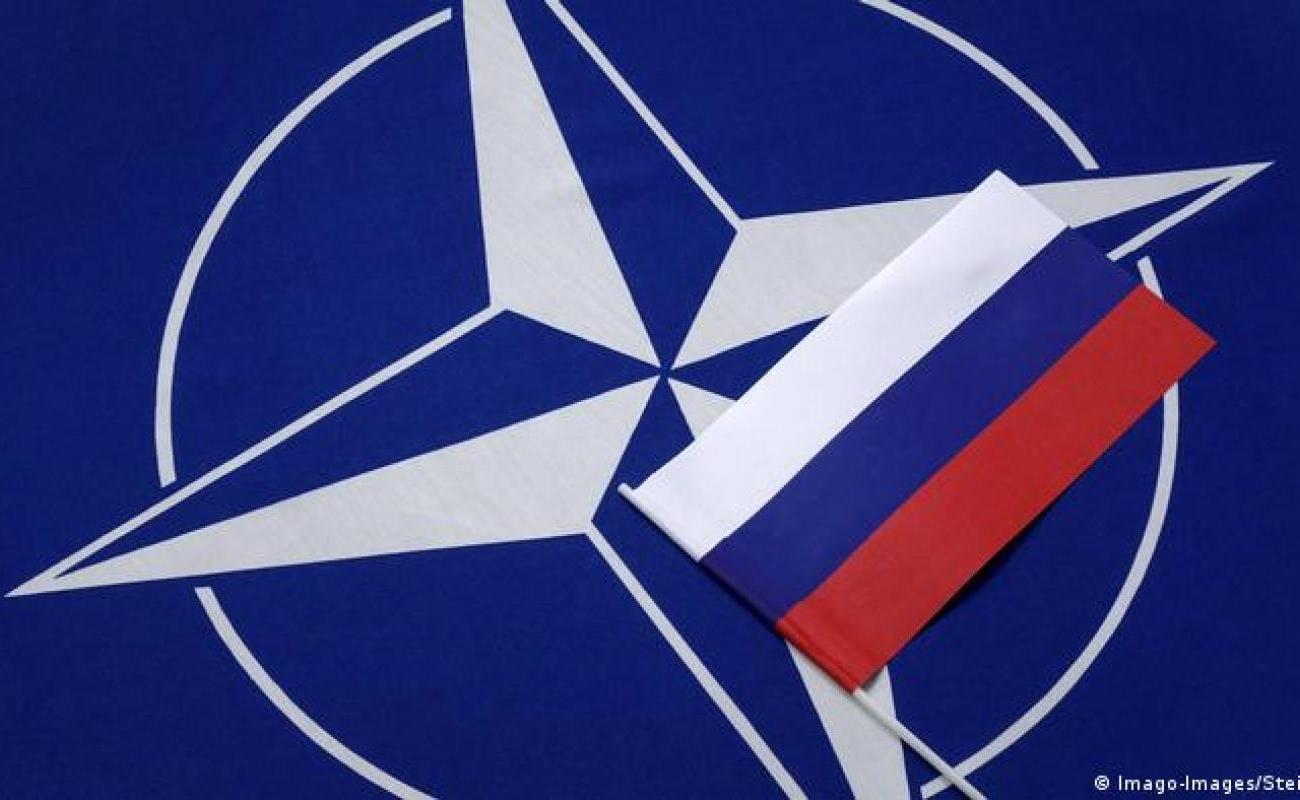Putin and NATO: a new level of escalation
Freezing relations with NATO gives the Kremlin a new chance - to increase tensions on the eastern wing of the Alliance and with Ukraine, estimates DW editor Konstantin Egert.

In a mocking tone, which has become a trademark of the Minister of Foreign Affairs of Russia, Sergei Lavrov proposed that NATO, "in case of urgent issues", address the Russian Embassy in Brussels, which is in fact in charge exclusively of bilateral relations between Russia and Belgium.
If there really was something that could be called "normal relations" between NATO and Russia, some "urgent issues" would have to be resolved: Afghanistan, tensions in the Indo-Pacific area, terrorism and global problems related to migration.
The basic act on joint relations, ie cooperation between NATO and Russia from 1997, has officially never ceased to be valid, but Moscow's relations with the North Atlantic Alliance have more than cooled since the beginning of the Russian-Ukrainian conflict in 2014.
A logical step for Putin
For the Russian president, this break is in fact a logical step. And not just because he is always afraid that he might accidentally leave the impression that he is "weak". In the 2020 referendum, which is thought to have been well-manipulated, Putin made sure he could stay in the Kremlin until 2036 - making him virtually a lifelong president.
He has since begun a new phase in his Cold War against the West, and NATO is the ultimate symbol of that conflict. In undermining or even destroying the unity of the transatlantic community, Putin sees not only a guarantee of the security of his own regime, but also of his historical heritage.
Closing the permanent Russian mission to NATO, the Kremlin is, even formally, an excuse to gradually increase tensions with neighboring countries. Primarily with Ukraine, but also with Poland and the Baltic countries. For Putin, such tensions are an important instrument, because he can thus create a gap in the ranks of the West and provoke disunity within NATO.
What might the new phase of escalation look like? Military actions such as the blockade of the Kerch Sea in the Black Sea or perhaps the blockade of Ukrainian ports are possible. As for NATO's eastern wing, Moscow, with the support of Belarusian dictator Alexander Lukashenko, is contributing to the escalation of the migrant crisis on the Lithuanian and Polish borders. An important part of the Kremlin's tactics is to test the extent to which NATO's borders have indeed been secured.
The Kremlin is convinced that such a policy will contribute to sowing the seeds of discord between the "good" French, Germans, Italians and Belgians, and the "evil" Poles, Czechs, Lithuanians, Latvians and Romanians.
A few weeks ago, the Russian ambassador to Belgium, Alexander Tokovinyin, gave another example of that tactic. In an interview with Belgian journalists, the diplomat praised Belgium as a country that, unlike other unnamed European countries, "does not create problems" in relations with Russia.
"You are a reasonable country"
"You are a reasonable country," he said in the conceited tone of a colonial governor. And he immediately moved on to another important topic: the story of how useful and profitable it is for each individual European country to be a customer of the Russian energy giant Gazprom.
And that is symptomatic. The current energy crisis, which Moscow is using to its advantage, is the culmination of a particularly successful year for Putin - we should mention the Geneva meeting with Joseph Biden, which was the end of his international isolation. Or the election victory of the German SPD (which has a reputation as a friendly party towards Moscow) and the visit of high-ranking US State Department official Victoria Nuland to Moscow, who came there to discuss disarmament and Russia's possible role in solving the Afghan problem.
This is a good time for the Russian regime to promote the strategic gas pipeline Nord Stream 2. Its main weapon is ready for operation. Following the severance of ties with NATO, the Kremlin will use these or other opportunities available to it even more actively.
